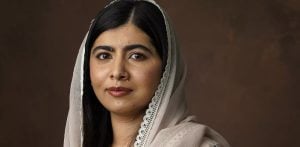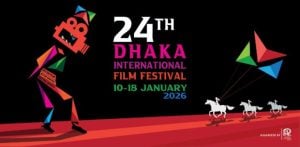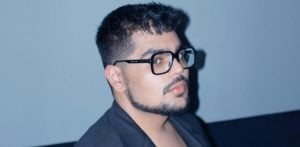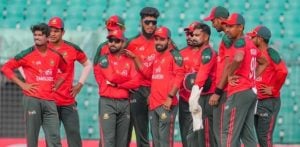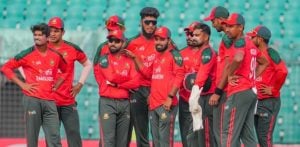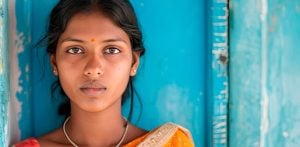“ASTITVA feels different for me personally and creatively"
ASTITVA is the latest and most ambitious work from award-winning choreographer Jaivant Patel.
This bold new dance production shines a light on British Indian gay men, offering visibility to voices too often overlooked. Through contemporary movement and original music, it explores the intersections of culture, identity, and sexuality with rare honesty.
Divided into four distinct chapters, Seeking, Desire, Acceptance, and Love, ASTITVA reflects the non-linear journey of queer South Asian life.
Each chapter captures emotions that range from longing to belonging, revealing the complexities of navigating love and identity under cultural expectations.
The production does not hide from intimacy or sensuality, instead embracing them as essential parts of existence.
With music composed by the globally respected Alap Desai, sound and choreography are woven together to create layers of meaning.
The performers embody both individuality and collective unity, reflecting the community bonds that sustain queer South Asians in the face of stigma.
By rejecting stereotypes and victim-centred narratives, ASTITVA reframes representation as one of empowerment, joy, and celebration.
As the tour gets underway in October 2025, DESIblitz caught up with Jaivant Patel to discuss ASTITVA’s themes and how it provides a voice to overlooked communities.
From Solo Performer to Ensemble Vision
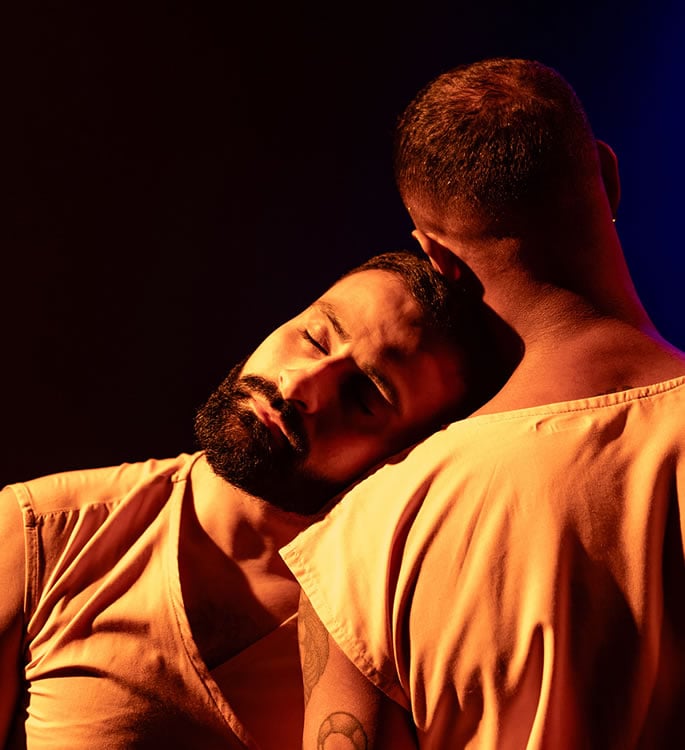
For Jaivant Patel, ASTITVA marks a long-held ambition, as he explains:
“Choreographing a full-length piece of work has always been a personal ambition. The concepts around ASTITVA started to formulate in my head around 2019.”
The Covid-19 pandemic delayed progress, leading to Waltzing The Blue Gods. Yet that detour shaped his latest production:
“Through the creative process in Waltzing The Blue Gods, I ended up working with male live musicians on stage who also became part of the narrative, chemistry and structure of the work.”
That experience influenced ASTITVA’s choreography and Patel’s growth as a maker:
“ASTITVA feels different for me personally and creatively for many reasons.
“I think the most important of these is about my growth as a maker, and my vision being extended and communicated through my craft on other bodies.”
Mapping Queer Journeys

ASTITVA’s four chapters, Seeking, Desire, Acceptance, and Love, reflect Jaivant Patel’s understanding of queer South Asian life:
“I believe the queer ‘life-timeline’ isn’t necessarily as linear as that of our heterosexual counterparts.”
These chapters emerged from lived conversations as much as his own story.
Patel elaborates: “These phases are reflected in not just mine, but the many conversations I have had with other South Asian Queer men about their lived experiences.”
Intimacy, love and sexuality take centre but Patel wanted to do a section about Love and what that means through a Gay South Asian lens, which was “clear and of importance to me”.
This honesty is deliberate, as he continues:
“ASTITVA is not there to play to stereotypes of what it means to be South Asian and instead presents a version of reality rooted in actual lived experience.
“We should be free and able to celebrate identity, sexuality and sensuality in all its forms.”
Patel also linked this to history:
“I often talk about colonisation, the legacy of Victorian morality, internalisation, and its continued impact on the South Asian community, that too from a country where the Kama Sutra was born.”
Breaking Stereotypes and Building Belonging
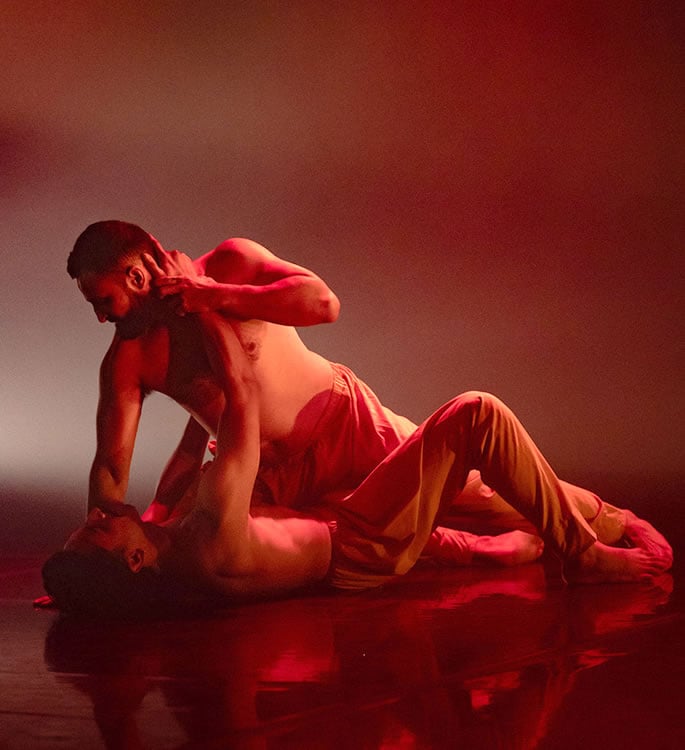
British South Asian queer stories are still rarely seen on stage and the Jaivant Patel Company’s (JPCo) current body of work is “probably seen as very political and contributing to artivism”.
Patel adds: “This will always bring many challenges to how the work is seen, championed, and celebrated.”
That difficulty is heightened by categorisation.
“JPCo’s work has never really fitted either a traditional South Asian dance ‘box’ nor a traditionally contemporary dance ‘box’ and unfortunately, we still live in a world of ‘boxing’, particularly when it comes to diverse work.”
ASTITVA aims to shift that conversation, as Patel explains:
“In bringing British Indian Gay narratives to the forefront through the medium of contemporary dance contexts, it is continuing to challenge what South Asian Dance is and what does it look like from both a British South Asian and British South Asian Queer lens.”
The choreography also explores unity.
Patel described portraying multiple performers as one soul: “Whilst the work is episodic and the performers non-linear in terms of characters, I could also see how, for some audience members, they would be, due to the emotional arc of the music and choreographic structure.
“That made me think of community… creating a sense of belonging and positive space.”
The third chapter, Acceptance, captures this directly. It “explores building community and platonic connection in a world where traditional families or structures aren’t always possible or present”.
Music as a Living Presence

Sound drives ASTITVA’s storytelling and for the production, Jaivant Patel collaborated with composer Alap Desai.
Desai’s Raag Darbari score deepens the performance.
Patel elaborates: “Music and musicality have always been important in the creation of all my work.
“Alap Desai’s music does just this and I feel privileged to have original music created by him for this production.”
ASTITVA’s score does more than accompany the movement.
“In ASTITVA, the music, vocals, and movement both act as instruments through which the narrative is portrayed and the journeying emotions within the storytelling are embodied.”
Patel pushes the relationship further, describing music as a performer in itself:
“I see the vocalisation in the music being an additional performer or even acting as the consciousness of the performers on stage.”
This musical and choreographic layering reflects Patel’s wider practice:
“I have always been interested in the utilisation of Indian classical dance and music as reference points to my heritage and how they relate to the intersections of my identity as a British Indian Gay man.”
Empowerment, Legacy and What’s Next

ASTITVA challenges victim-centred narratives that too often frame queer South Asians.
On this, Patel says: “By saying I reject victim-centred queer narrative, I refer to a cultural reference point… that defines the existence of the Queer South Asian community by seeing them as victims of circumstance.”
Instead, the focus is joy and strength.
“A major driver in JPCo’s work has always been about being unapologetic in the empowerment, visibility, and amplifying Queer narratives from the South Asian lens.
“Our mission statement is ‘the Joyful, Reimagining of Bold human stories’.”
Audiences have already connected with this vision.
After a Wolverhampton preview, Jaivant Patel reflected: “It’s always great when members of the LGBTQIA+ community feel represented and see a work that is positive in how they are reflected in performance spaces.”
The world premiere of ASTITVA will serve as the launch of the new Bradford Arts Centre, formerly Kala Sangam, on October 9-10, 2025.
Looking back on JPCo, which was founded in 2004, Patel sees continuity in his company’s mission.
He says:
“JPCo’s productions have always been unique and ground-breaking…specifically around Queer South Asian narratives.”
“It’s important I acknowledge Arts Council England and their investment in JPCo as one of their National Portfolio Organisations.”
But ASTITVA is also about the future, with Patel emphasising:
“ASTITVA’s tagline is ‘A bold portrayal of British-Indian Gay men…Visible, Empowered, Celebrated!’
“That is what I hope the South Asian LGBTQIA+ community take away… they feel visible, they are empowered, and they feel celebrated.”
Jaivant Patel’s ASTITVA is a landmark moment for British South Asian theatre.
By blending movement, music, and lived experience, it creates a powerful space where queer South Asian stories are visible, empowered, and celebrated.
This production dismantles stereotypes, reclaims heritage, and speaks to the universal search for love, acceptance, and belonging.
Whether you are drawn to dance, storytelling, or the exploration of identity, ASTITVA promises something both profound and relatable.
It holds up a mirror to our families and shared values while daring us to see the world differently.
ASTITVA will be touring four locations:
- Bradford Arts Centre – October 9-10, 2025
- Arena Theatre Wolverhampton – November 6, 2025
- Birmingham Rep – November 21-22, 2025
- The Place – March 3-4, 2026







